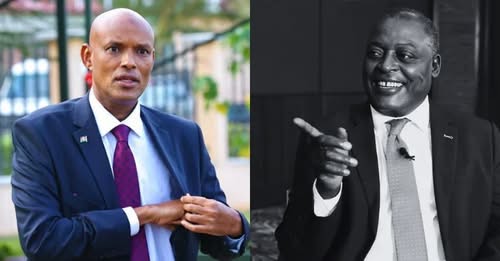The Politics of Convenience: How Leaders Shift Stances for Power

Politics is constantly evolving, often dramatically, influenced by circumstances, power struggles, and political ambition.
One of the most intriguing patterns in politics is how individuals who once opposed the government often change their stance upon gaining power. Strong critics suddenly fall silent, and their once fervent opposition fades.
Conversely, some leaders who previously praised government initiatives later become vocal critics, condemning the very policies they once championed.
Take, for example, former Deputy President Rigathi Gachagua. While in office, he supported government projects such as the Social Health Authority (SHA), urging people to register. Now, as an opposition figure, he rejects the same initiatives he once endorsed.
Similarly, Cabinet Secretary for Mining, Blue Economy, and Maritime Affairs, Hassan Joho, was a fierce critic of President William Ruto, branding his administration as corrupt and vowing never to associate with him. However, after his appointment as Cabinet Secretary, he now praises the government and urges coastal residents to remain loyal to it.
Another example is Wycliffe Oparanya, Cabinet Secretary for Cooperatives and MSMEs Development. He once dismissed the Hustler Fund as political tokenism, advising Kenyans not to repay it. Yet, since his appointment, he now advocates for loan repayments, recognizing the fund’s intended benefits.
President William Ruto himself has also shifted his position. Initially rejecting any collaboration with ODM leader Raila Odinga, he now calls for a broad-based government, acknowledging Odinga’s role in national affairs. Similarly, Odinga, once a harsh critic of Ruto, now refers to him as a "brother."
These inconsistencies frustrate citizens, who are left wondering whether such shifts stem from political strategy, personal ambition, or the pursuit of power. The public, having placed trust in these leaders, questions what happened to their promises of accountability and reform.
This pattern of shifting alliances is common in politics, but it raises valid concerns about integrity and commitment to principles. True leadership is not about conforming to power but about challenging it when necessary. Leaders must remain steadfast in their values and uphold the trust of the people who elected them.
Ultimately, leadership is not just about holding office; it is about staying true to the promises that earned that office. Only by genuinely representing the people can politicians deliver the change they once vowed to achieve.







Comments (0)
No comments yet. Be the first to comment!